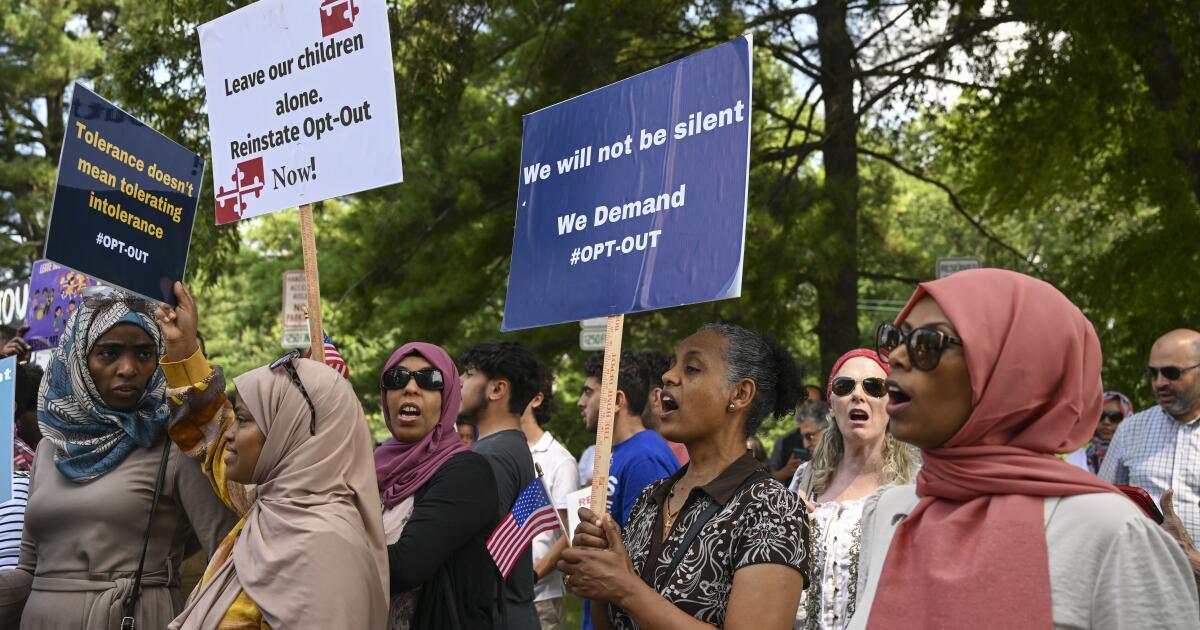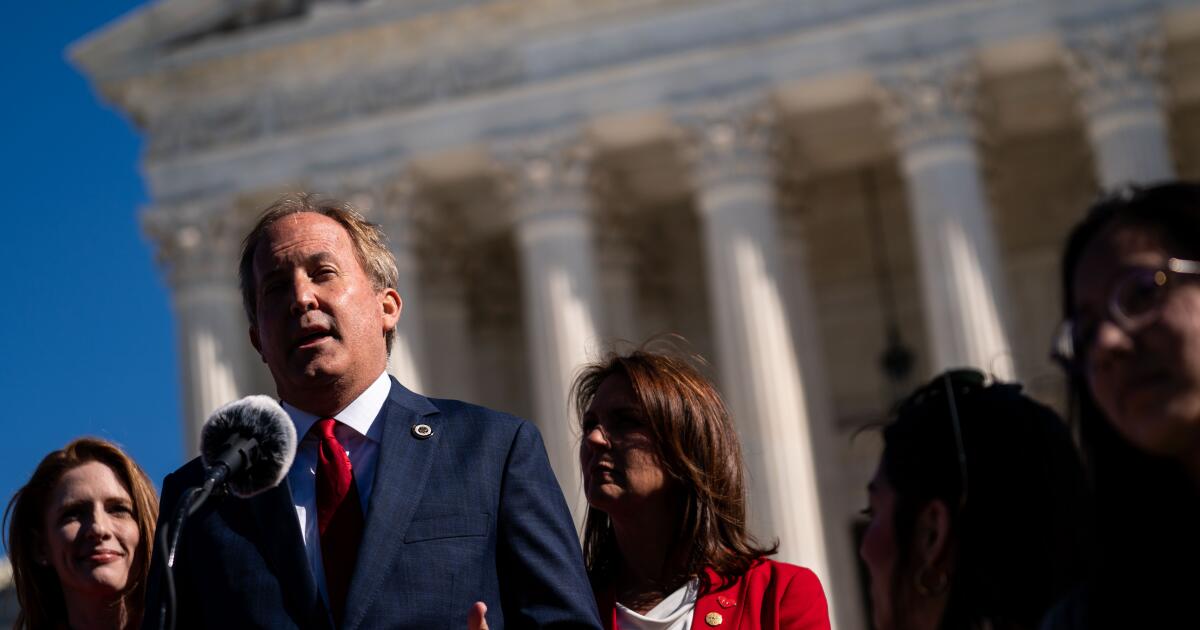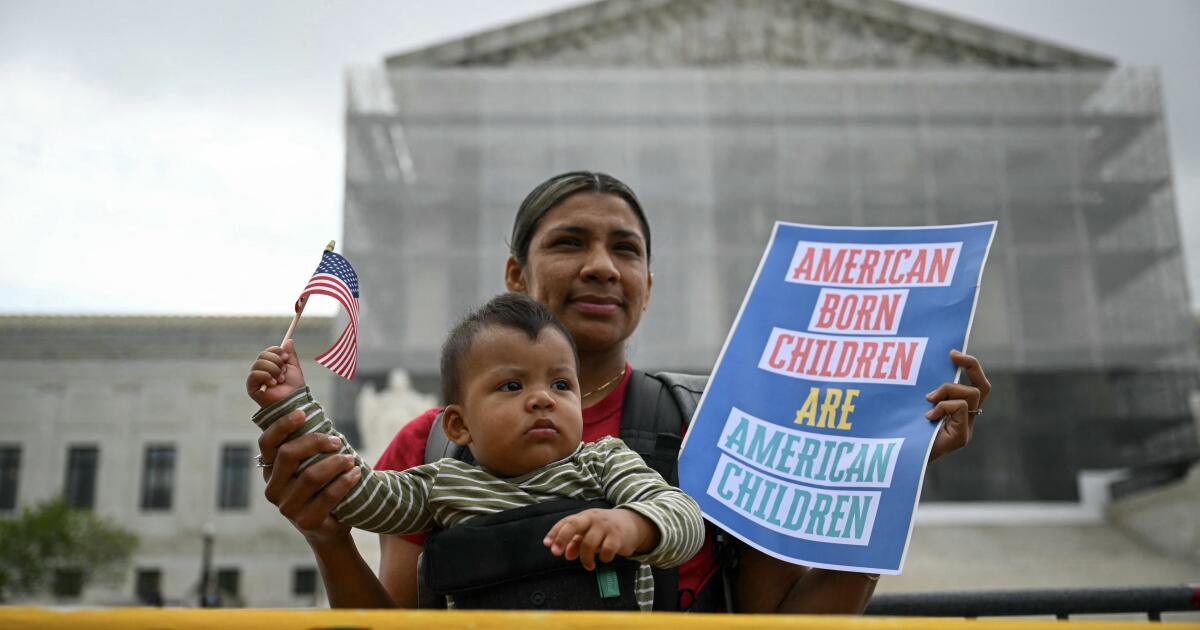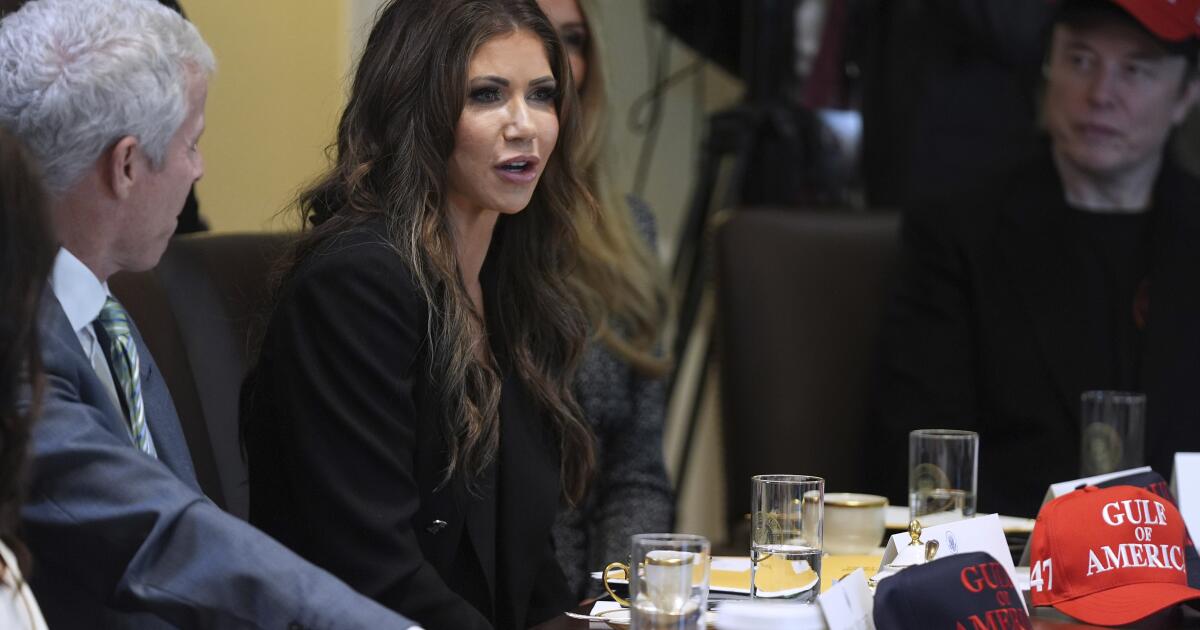Parents may pull their children from classes that offend their religion, Supreme Court rules
WASHINGTON — The Supreme Court ruled Friday that parents have a right to opt their schoolchildren out of classes and lessons that offend their religious beliefs.
The 6-3 ruling will have an impact nationwide because it empowers parents who object to books or lessons at school.
“A government burdens the religious exercise of parents when it requires them to submit their children to instruction that poses a very real threat of undermining the religious beliefs and practices that the parents wish to instill,” said Justice Samuel A. Alito, speaking for the conservative majority.
Parents in Montgomery County, Md., sued over new LGBTQ+ storybooks that were used in kindergarten and elementary school classes.
This clash between progressive educators and religiously conservative parents moved quickly to the Supreme Court after judges refused to intervene.
Alito said the parents were entitled to a preliminary injunction that would require the schools to “notify them in advance” when one of the disputed storybooks would be used in their child’s class.
In ruling for the parents, the court did not say parents have a right to change the lessons and books that were used at school. They could, however, choose to have their children temporarily removed from those classes.
The court’s three liberals dissented.
“Today’s ruling ushers in … new reality, “ Justice Sonia Sotomayor said. “Casting aside long-standing precedent, the Court invents a constitutional right to avoid exposure to subtle themes contrary to the religious principles that parents wish to instill in their children. Given the great diversity of religious beliefs in this country, countless interactions that occur every day in public schools might expose children to messages that conflict with a parent’s religious beliefs. The result will be chaos for this Nation’s public schools.”
Eric Baxter, senior counsel at Becket Fund for Religious Liberty, called the decision “a historic victory for parental rights in Maryland and across America. Kids shouldn’t be forced into conversations about drag queens, Pride parades, or gender transitions without their parents’ permission.”
He appealed the case to the Supreme Court last fall.
“Today, the Court restored common sense and made clear that parents — not government —have the final say in how their children are raised,” he said.
Civil rights advocates condemned the ruling.
“All students deserve to feel safe and welcome in their classrooms. Educators should prepare them for the world we live in and promote curiosity, acceptance, and respect for all people. Yet today’s decision by six justices encourages open discrimination toward LGBTQ+ children and families and favors ignorance and censorship over inclusion,” said Liz King, director for education equity at the Leadership Conference on Civil and Human Rights.
Nearly every state, including Maryland and California, has a law that allows parents to opt out their children from sex education classes.
But Montgomery County officials said this state rule applied to older students and to sex education, but not to reading lessons for elementary school children.
When the new LGBTQ+ storybooks were introduced in the fall of 2022, parents were told their young children could be removed from those lessons. But when “unsustainably high numbers” of children were absent, the school board revoked the opt-out rule.
In reaction, a group of Muslim, Catholic and Ukrainian Orthodox parents filed a suit in federal court, seeking an order that would allow their children to be removed from class during the reading lessons.
A federal judge and the 4th Circuit Court of Appeals refused to intervene.
Those judges said the “free exercise” of religion under the 1st Amendment protects people from being forced to change their conduct or their beliefs but it does not shield people from views they oppose.
Lawyers for the Becket Fund for Religious Liberty appealed to the Supreme Court.
They said the school board had “mandated new ‘inclusive’ storybooks that celebrate gender transitions, explore Pride parades and introduce same-sex romance between young children.”
At first, parents had been promised they would be notified and could opt their children out when the storybooks were read, they said. But that promise was revoked.
“If parents did not like what was taught to their elementary school kids, their only choice was to send them to private school or to home school,” they said.



